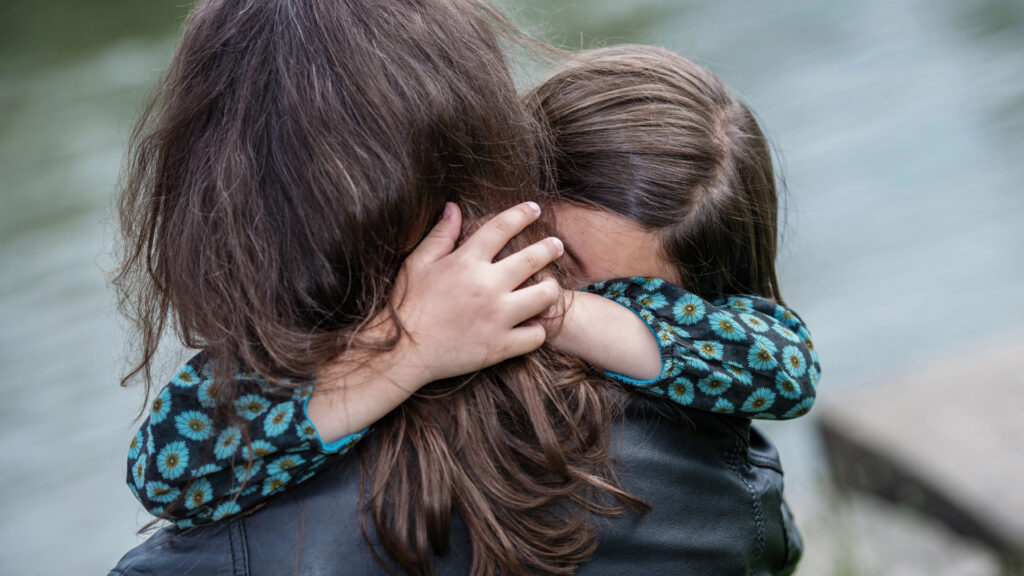The author and actress shares her story about getting a second chance to connect with her parents
The winter I was 5 years old, my parents packed up our wood-paneled station wagon and drove north from our hometown of Mobile, Alabama, to Wilmington, Delaware. We arrived at my aunt’s house with only the suitcases that fit in the car; we didn’t have winter coats or the money to buy them.
My mother immediately took to bed in a nylon peignoir set. It wasn’t her bed; it was a twin in my cousin Shari’s bedroom. I’m sure my mother must have left the room for meals, but in my child’s memory, she didn’t emerge again for several months. She was in mourning for her life, to use Anton Chekhov’s phrase. Meanwhile, my aunt and uncle folded my older sister and me into their brood as my father looked for work.
My parents eventually got back on their feet, landing in sunny South Florida, and my mother resumed the minimal duties of a suburban housewife of the 1970s, driving me to dance lessons and doctor’s appointments. Any more challenging tasks, like protecting me from my father’s unpredictable temper, fell to my sister, Lisa. That was just as well, since the more time I spent with my mother, the more we fought. I was always doing something criminal in her eyes, such as refusing to brush my long hair.
Later on, when the money for my college education evaporated into one of my dad’s many schemes — silver mines, soft-core porn, who can remember? — as angry as I was with him, I was even more disappointed in her. How could she let her husband leave her child so vulnerable?
There were years of estrangement after that, but grandchildren have a way of bringing a family together, even though my mother seemed to consider grandparenting a spectator sport. She couldn’t manage tasks such as changing my son Ezra’s diapers, but she loved to watch him while he napped. By that time I knew not to expect more from her. We had reached a sort of détente.
That particular house of cards came crashing down in 2014, with the discovery that my parents — then both 78 — had zero savings, a clutch of maxed-out credit cards and a slew of unattended medical issues. Lisa sprang into action and came up with a strategy to allow them to live with their basic needs covered. She’d long shouldered the majority of the parental wrangling, but the tasks ahead were overwhelming even for her, and she enlisted me to sell their home and help see to their well-being.
My parents had given me every reason to opt out, yet I stepped in because of the debt I owed my sister for fulfilling the maternal role in my life. Perhaps there was also a bit of self-interest at work.
I’m fairly certain my son has been documenting my many missteps, and I thought that if I modeled selfless filial behavior for him, just maybe he’d behave the same way toward me one day.
On the tour of the assisted living facility that would become my parents’ home for the last years of their lives, something shifted. So great was their anxiety in their new surroundings that even my father, at 6 foot 4, appeared shrunken. His typical swagger seemed suddenly tentative.
We were enjoying a Cobb salad in a brightly lit dining hall when a woman, perhaps a decade my parents’ junior, rushed into the room.
“Help!” she pleaded. “They’re trying to kill me! Help me!”
Her eyes searched the room and met mine.
“Somebody, do something,” I stammered, rising out of my seat.
No one moved. Two attendants appeared at the door, and the woman fled, screaming and waving her hands. When the diners returned their attention to dessert without missing a beat, I realized she was a resident who’d wandered in from the adjoining memory-care facility.
I excused myself from the table, sat in a bathroom stall and sobbed. After I’d collected myself enough to wash up, I saw that my mother was drying her hands at the sink. I had no idea how long she’d been standing there.
“You’re going to fit right in, Mom,” I told her. “You’ll be the one screaming, ‘They’re trying to kill me,’ in no time.” We laughed so hard we wept.
Their transition to their new life was fraught. I visited so frequently that the staff began to refer to me as a part-time resident. As my parents found their footing, my father busied himself with his poker buddies, and my mother and I engaged in heated arguments over the selection of reading material in the poetry class. At our weekly chair-exercise class, we were both distressed that the playlist included Mel Tormé’s “Don’t Get Around Much Anymore,” and we successfully campaigned for the addition of a disco number.
Caregiving has been called the daughter trap, since it tends to disproportionately fall to female offspring. But for me it became a daughter opportunity — a chance to appreciate my mom through new eyes. Her intellect, dry wit and elegant figure drew friends to her. My father noticed and stepped up his game, never missing a chance to surprise her with little treats like chocolates.
Every night at dinner, she’d ask me, “Can I interest you in a cheap merlot?” in a voice laced with sarcasm.
“Cheap merlot is my favorite vintage, Mom.”
One night I asked her gingerly, “What do you think will happen when you die?”
“I will be touching many countries,” she replied. “I always loved traveling. I want to be cremated and have my ashes spread at sea.”
When my father died of a stroke, in 2016, my mother’s health took a precipitous turn, and it fell to me to settle her into the facility’s hospice.
“I’m so proud of the work my daughter is doing in the community,” she boasted to one of her nurses.
She thought I was my sister, who has dedicated her life to running nonprofits. For exactly how long had she been confused? I’ll never know.
This past summer I traveled with my parents’ ashes to Martha’s Vineyard, where they had spent their honeymoon. My mother was convinced I’d get the wind direction wrong and some of her would blow back into my hair. For the occasion, I tamed my hair, still tangled as ever, into a tight ponytail, in tribute to the mother I almost missed out on getting to know. I scattered her ashes in the Atlantic, and they floated, then dispersed, carried by the current to parts unknown.
Annabelle Gurwitch, 57, is the author of the memoir Wherever You Go, There They Are, from which parts of this essay are adapted.



